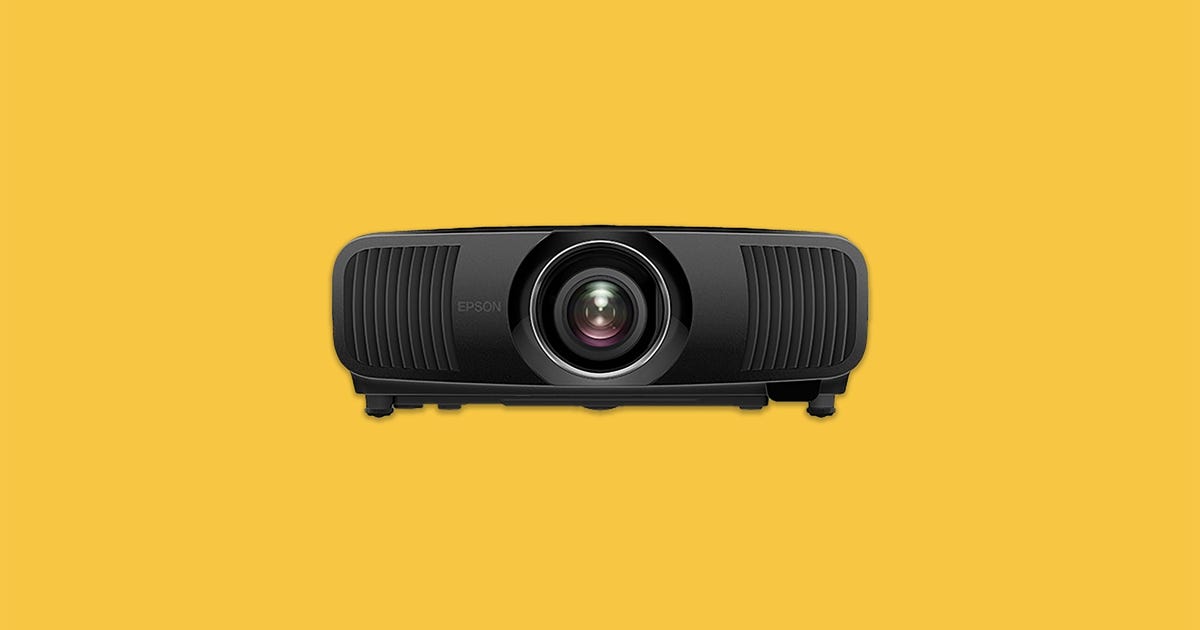
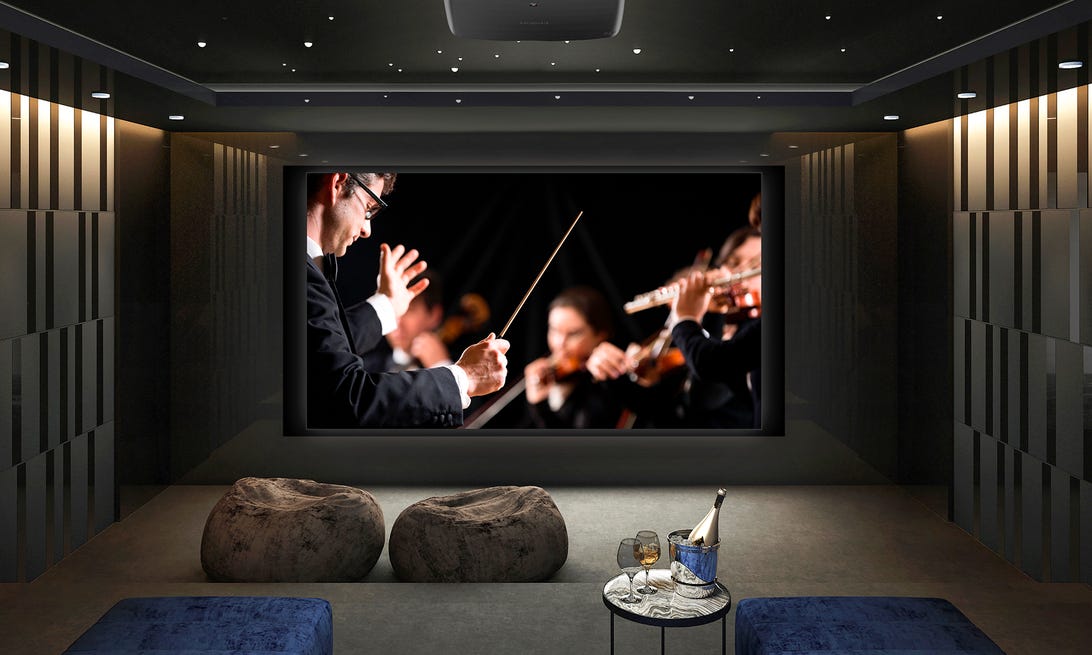
Epson
The laser revolution in projection continues with Epson introducing two new high-end home theater projectors, the Home Cinema LS12000 and Home Cinema LS11000. They promise high brightness and punchy contrast, as well as a variety of other upgrades over one of our favorite 4K projectors, Epson’s Home Cinema 5050. I’m most interested in the LS11000 since its $4,000 price tag is right in between the HC5050 and another of my favorites, the $5,500 Sony VPL-VW325ES.
I hope to test the LS11000 soon, but in the meantime here’s how it and the similar LS12000 look on paper.
Why laser lights could steal the show
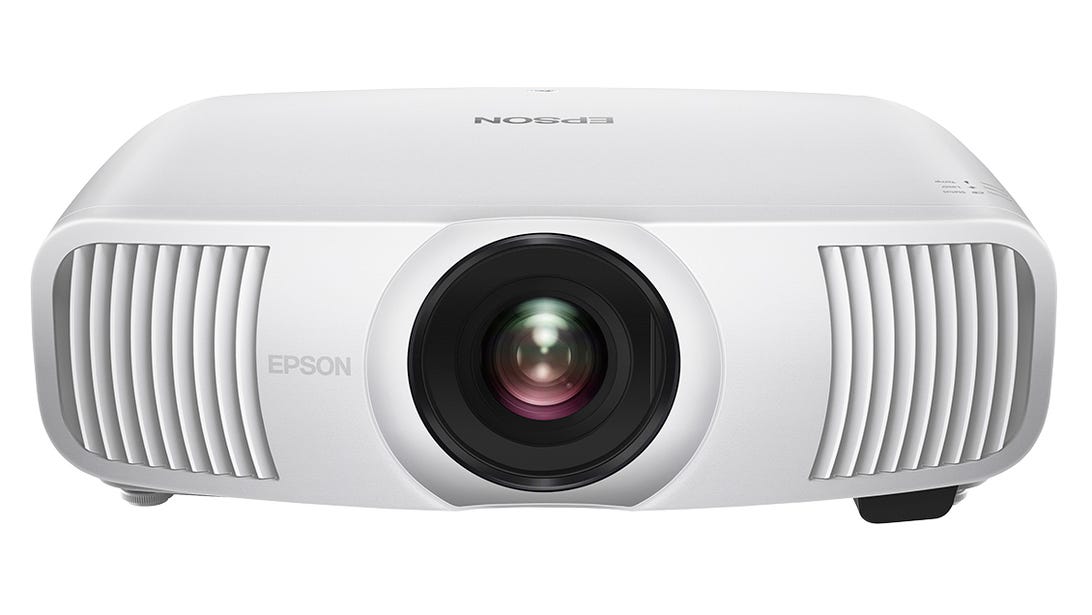
Epson Home Cinema LS11000
Epson
The top new feature is better lasers. Most projectors still use UHP lamps, which are essentially expensive light bulbs. They create tons of light, heat, and after a few years of use, you need to replace them. They’re also limited to creating essentially white light, but for an image on-screen you specifically need only red, green, and blue. With a UHP lamp a lot of the light is wasted in the process of creating those colors, either blocked by dichromatic mirrors or, in the case of single-chip DLP projectors, color filters.
Lasers, conversely, create very specific colors, so less of the energy used to create light is wasted. Potentially, manufacturers can design the projector to create deeper colors as well. Epson already uses lasers in other, less-expensive projectors like the EpiqVision Mini EF12, but the company says the new laser light engine in the LS11000/LS12000 is even better: “True multi-array laser diodes are the optimum light source to power the unique 3-chip 3LCD projector engine for incredible picture brightness, black contrast and color accuracy.”
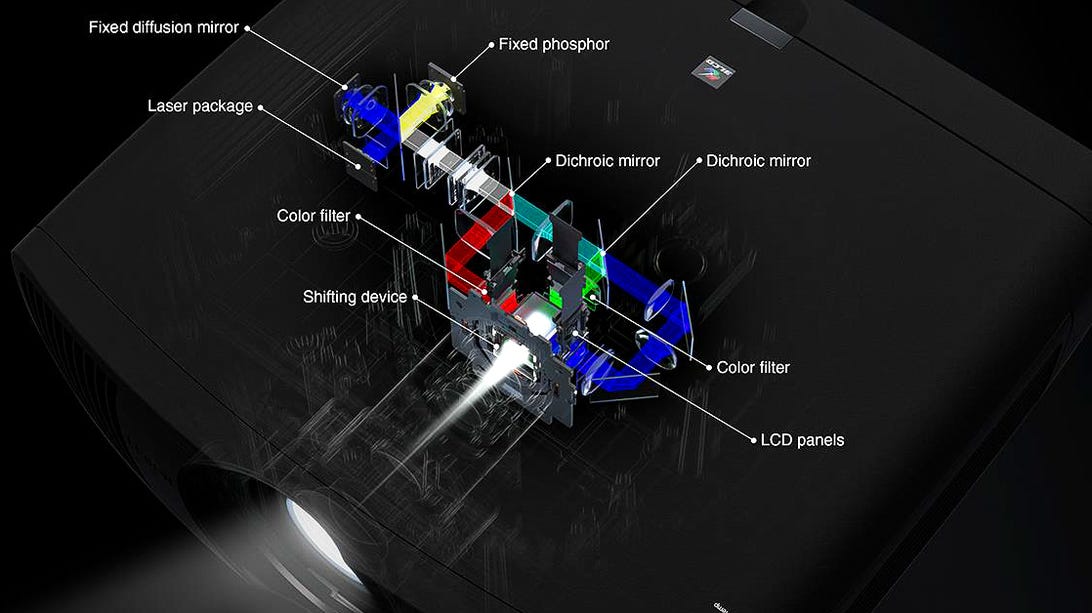
A blue laser creates blue light as well as supplying energy to a yellow phosphor. These are split using dichroic mirrors into red, green and the original blue. Each color reflects off its own LCD panel, which creates its part of the image. Combined, you get the full color image on screen.
Epson
Another big improvement is new pixel-shifting tech Epson calls “Precision Shift Glass Plate Technology.” Both the 11000 and the 12000 use three 1080p LCD panels to create an image. The pixel shifter shifts pixels 4x, so on screen you get a full 4K 3,840×2,160 image. The HC5050’s pixel shifter was only 2X, resulting in a softer, 1080p x2 image to my eye.
The potential result is that the new projectors will offer more detail. DLP projectors in this price range do their own version of this, for what it’s worth. You don’t get image chips with full 4K resolution until you spend a lot more money.
The new projectors also support 4K120 input. This gaming-centric extra can potentially deliver smoother images with some Xbox Series X and PS5 games, and while common among newer TVs, it’s rare to see in projectors.
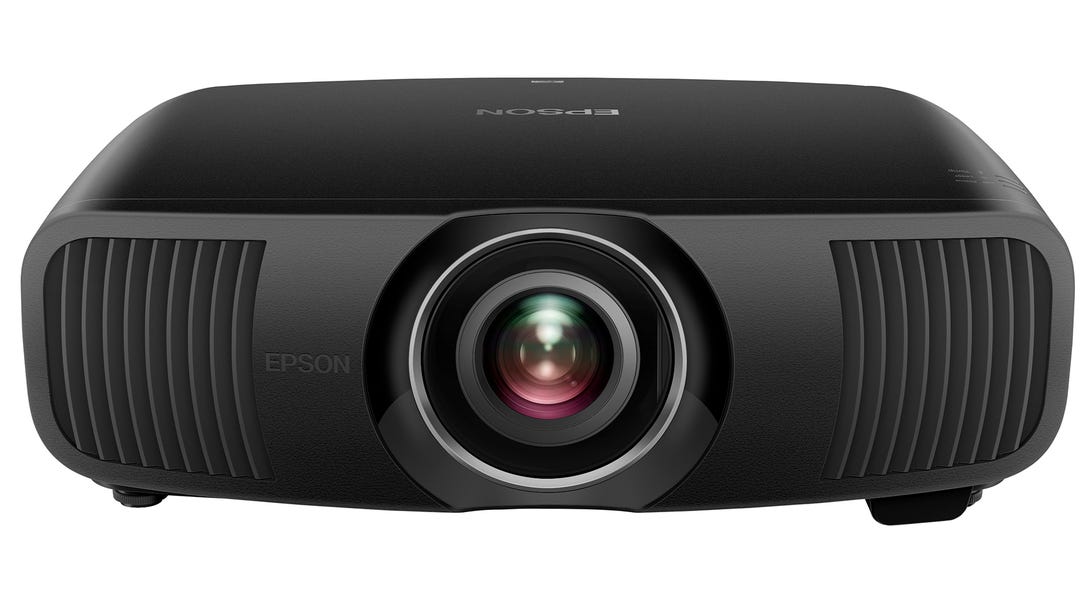
Epson Home Cinema LS12000
Epson
In addition to a black case, paying an extra $1,000 for the 12000 over the 11000 gets you 200 more lumens, 2500 vs. 2700, as well as a mounting kit, ISF-certified calibration tools and the option for an anamorphic lens. There’s also a higher claimed contrast ratio, though as we’ve discussed, those numbers are always suspect.
A long time coming
I’m generally excited about the transition, slow as it has been, away from lamps and toward laser light sources in projectors. Lasers offer for projectors many of the benefits found in LED LCDs, most importantly light output and color.
However, so far the results have been a bit of a mixed bag. The LG HU810PW was lacking in several key areas, though it didn’t seem like that was due to the lasers. The Optoma UHZ50, by contrast, was quite good. In both cases the projectors were bright and colorful.
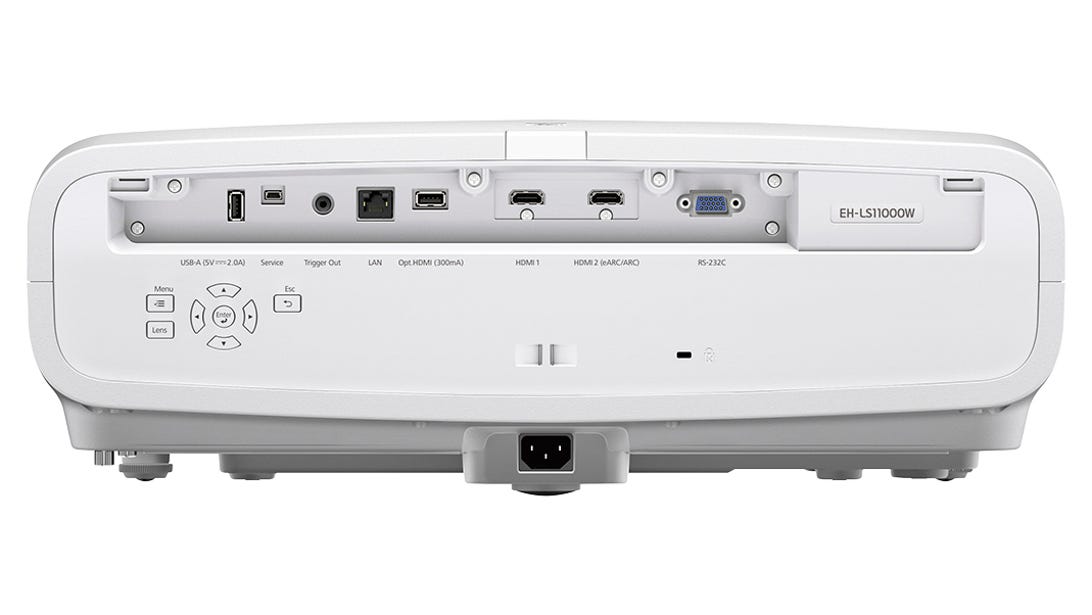
The back of the LS11000
Epson
What’s potentially interesting about the new Epsons is combining the benefits of lasers with the benefits of Epson’s best LCD projectors, including lens shift, motorized zoom and relatively quiet operation. These are extras are less common, or nonexistent, in most single-chip DLP projectors. Also, the biggest issue with the 5050 was its softness compared to “true” 4K projectors. Since the new pixel shifter is 4x compared to the 5050’s 2x, the 11000/12000 will theoretically look more detailed, despite still using native 1080p image sensors — though it’s unlikely they’ll look as detailed as DLP because that technology is just inherently sharper. But we shall see.
Both the LS11000 and LS12000 are now available now for $4,000 and $5,000 respectively. I’ll be getting an 11000 for review in the next few weeks. Stay tuned.